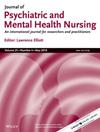Spiritual care for clients with mental illness from an Islamic background: Nursing students' perspectives
Abstract
What is known on the subject?
- Spirituality is an important aspect for clients with mental illness.
- Spirituality is essential to holistic care in mental health nursing.
- Nurses found an apparent disconnection between the theory and practice of spiritual care.
What the paper adds to existing knowledge
- Nurses acknowledged that attitudes that allocate blame towards clients with mental illness have the most negative impact on clients' spiritual wellbeing.
- The conflicting worldviews between spiritual healing and a biomedical approach impact the provision of care as relationships among the mental health team are disrupted.
- The non-assessment of the client's spirituality hindered nurses from providing spiritual care.
- Language differences between nurses and clients impede nurses from providing spiritual care.
What are the implications for practice?
- The use of spiritual therapy as an element of nursing care works if clients and nurses are both aware of the importance of spirituality.
- Nursing staff must also be aware of several issues that may make it difficult for nurses to provide such therapy, including specific symptoms of mental illness.
- Nurses can apply spiritual care effectively when they have significant spirituality.
- Nurses with good competency in mental health nursing skills are more likely to provide efficient spiritual care as part of holistic care.
Introduction
Spiritual care is essential to clients with mental illness.
Aim
To explore mental health nursing students' perspectives on spirituality and spiritual care and how this impacts clients with mental illness in an Islamic context (Saudi Arabia).
Method
Thematic analysis is used to analyse data from two focus groups of mental health nursing students (one comprising eight, the other six).
Results
Six themes emerged: factors affecting spirituality in mental illness, the impact of mental illness on spirituality, the use of spiritual healing in mental illness, nurses' use of spiritual healing; challenges in providing spiritual care and recommendations for improving spiritual care.
Discussion
Clients being blamed for having mental illness by health professionals and the community harmed their spirituality. The religious support of peers was a practical approach to spiritual therapy, asserted as a beneficial element of nursing care. However, nurses found providing such therapy challenging because of the language barrier and the lack of any assessment of clients' spirituality. It was also challenging when dealing with specific symptoms of mental illness.
Implications for practice
The study asserts that spiritual therapy in nursing care will work if the client knows its importance. Nurses who have significant spirituality can apply it effectively.

 求助内容:
求助内容: 应助结果提醒方式:
应助结果提醒方式:


